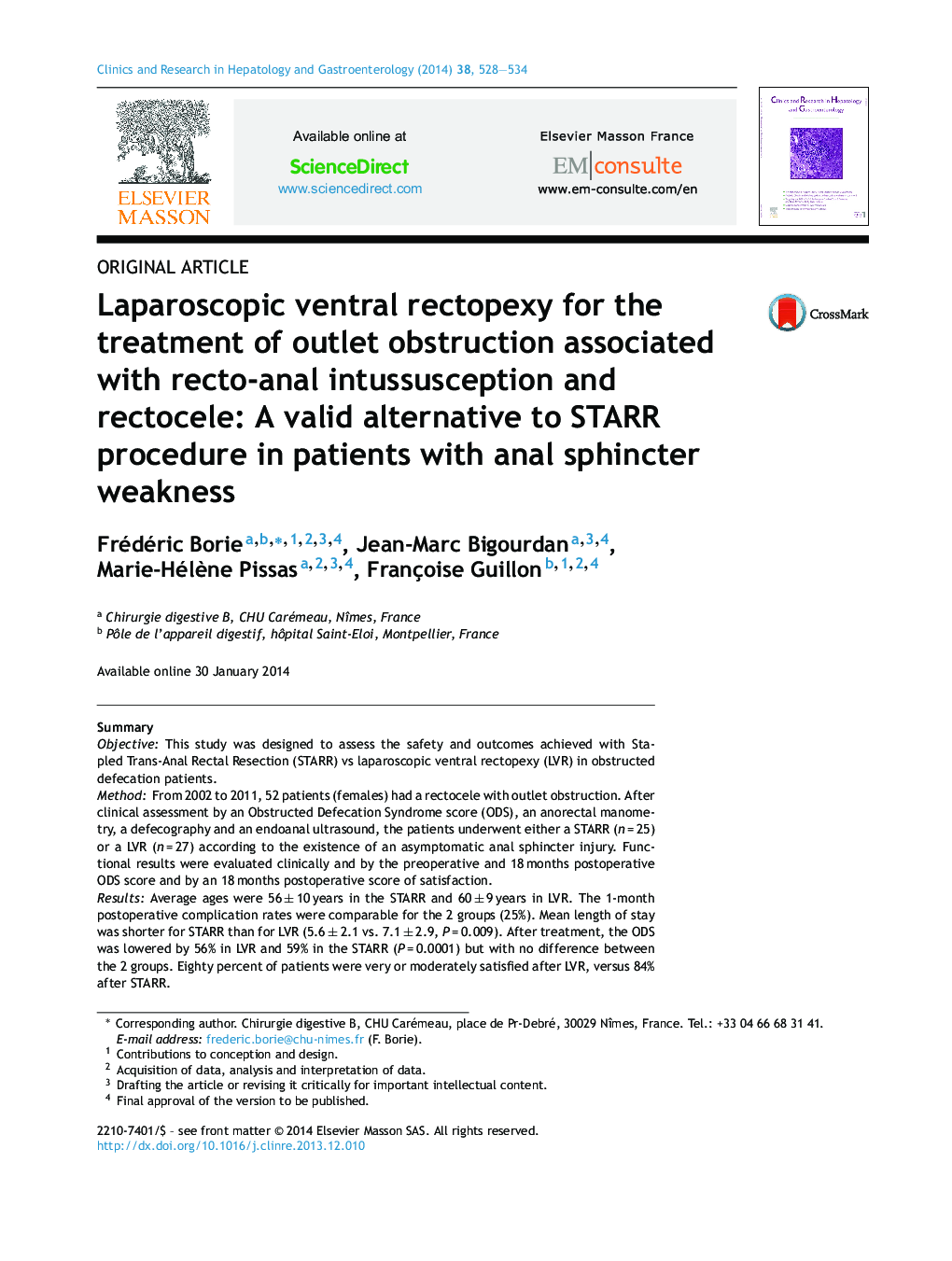| Article ID | Journal | Published Year | Pages | File Type |
|---|---|---|---|---|
| 3286332 | Clinics and Research in Hepatology and Gastroenterology | 2014 | 7 Pages |
SummaryObjectiveThis study was designed to assess the safety and outcomes achieved with Stapled Trans-Anal Rectal Resection (STARR) vs laparoscopic ventral rectopexy (LVR) in obstructed defecation patients.MethodFrom 2002 to 2011, 52 patients (females) had a rectocele with outlet obstruction. After clinical assessment by an Obstructed Defecation Syndrome score (ODS), an anorectal manometry, a defecography and an endoanal ultrasound, the patients underwent either a STARR (n = 25) or a LVR (n = 27) according to the existence of an asymptomatic anal sphincter injury. Functional results were evaluated clinically and by the preoperative and 18 months postoperative ODS score and by an 18 months postoperative score of satisfaction.ResultsAverage ages were 56 ± 10 years in the STARR and 60 ± 9 years in LVR. The 1-month postoperative complication rates were comparable for the 2 groups (25%). Mean length of stay was shorter for STARR than for LVR (5.6 ± 2.1 vs. 7.1 ± 2.9, P = 0.009). After treatment, the ODS was lowered by 56% in LVR and 59% in the STARR (P = 0.0001) but with no difference between the 2 groups. Eighty percent of patients were very or moderately satisfied after LVR, versus 84% after STARR.ConclusionsThe 2 surgical procedures obtain good results with 80% of satisfied patients with a length of stay a little shorter in the STARR.Brief summaryIn our retrospective study, Stapled Trans-Anal Rectal Resection (STARR) and laparoscopic ventral rectopexy improved the outlet obstruction associated with recto-anal intussusception and rectocele.
